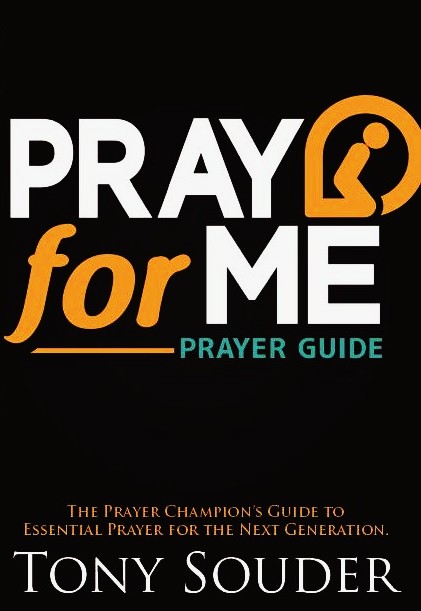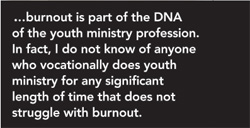[vc_row][vc_column width=”1/1″][vc_column_text] As you probably know already, CEP has undergone a bit of a transformation over the last few years. Most notably was the hiring of Dr. Stephen Estock as the new coordinator and most noticeably was our name change to CDM (Committee on Discipleship Ministries). Along with those major changes, came a new website, a rebranding, a slate of new conferences, a new Women’s Ministry Coordinator and new material to aid in the discipleship efforts of your church. While all of those changes have been good and while excitement about the work of CDM is growing and while the vision of CDM to connect and equip is bearing fruit the REAL question that needs to be answered is:
As you probably know already, CEP has undergone a bit of a transformation over the last few years. Most notably was the hiring of Dr. Stephen Estock as the new coordinator and most noticeably was our name change to CDM (Committee on Discipleship Ministries). Along with those major changes, came a new website, a rebranding, a slate of new conferences, a new Women’s Ministry Coordinator and new material to aid in the discipleship efforts of your church. While all of those changes have been good and while excitement about the work of CDM is growing and while the vision of CDM to connect and equip is bearing fruit the REAL question that needs to be answered is:
What is happening with YXL East at Covenant College?
In honor of grandfathers everywhere, I would like to answer this important question with a story that may or may not have anything to do with the topic at hand.
My favorite childhood candy bar was the Reece’s Peanut Butter Cup. Two great taste coming together to make one awesome candy bar. What’s not to love…peanut butter and chocolate…chocolate and peanut butter? Though I strongly suspect that Hershey’s has been slowly decreasing the size of the cup while at the same time raising the price of the candy bar, there is still nothing takes care of my mid-afternoon craving for sweets like the confectionary goodness that is a Reece’s Peanut Butter Cup.
In the same way that H.B. Reece discovered in 1928 that two great tastes when put together became something incredible, Dr. Estock and Rev. Joey Stewart, the Executive Director of Reformed Youth Ministries are bringing two great “tastes” (YXL and RYM) together to make something equally as incredible. Ok…maybe not as incredible as the Reece’s Peanut Butter Cup because we all know that would be just about impossible but the new YXL leadership development track at RYM’s new mid-Atlantic conference is going to be awesome.
Several months ago, Rev. Stewart extended an invitation to Dr. Estock for CDM to join with RYM in the launch of their newest summer conference by developing a YXL leadership track for students who are looking to move to the next step in their faith journey. After coming to the realization that both groups already shared a number of common commitments in terms of a theological, Gospel driven and relational approach to next generation ministry, the decision to join forces became in the words of Rev. Stewart a “no brainer” that would be a “win, win for all of us.” For RYM which has a long history of running solid summer conferences in which thousands of youth attend each summer, YXL gives them the chance to offer something that they have not been able to in the past: a leadership development track. At the same time, YXL which has a long history of running smaller summer conferences focused on helping students grow as servant leaders, RYM gives CDM the chance to work with more students and have a potentially bigger impact in the local church. While some of the dynamics that have made YXL East at Covenant College a unique experience for high school students will necessarily be changing the benefits of this new partnership will ultimately enhance CDM’s efforts through YXL to equip the next generation to serve in the church and in the kingdom.
Students who sign up to participate in the YXL leadership track will be able to take part in the larger activities of the conference but will have dedicated time each day for the intimate teaching and relational times that make the YXL experience so special. The RYM theme this summer is “Abide in Christ” based on John 15:5 and the YXL theme is “Made for This” based on Ephesians 2. We will be spending our time together unpacking and working to understand what our individual divine designs are. As always, we will blend together biblical teaching with leadership activities to help students better understand who God has made them to be.
The dates for RYM’s Mid-Atlantic Conference are August 2nd-6th. You can find out more information and register for the conference through RYM’s website: www.rymonline.org . For those who still prefer the more traditional YXL experience both YXL Horn Creek and YXL Northeast are continuing as they have in the past. You can find out more information regarding YXL Horn Creek at www.yxlhorncreek (Camp dates: July 4-11, 2015) or to learn more about the Northeast Camp in Lebanon, PA visit www.yxlnortheast.org/cms/ (Camp dates: July 5-10, 2015).[/vc_column_text][/vc_column][/vc_row]



 I believe it was Benjamin Franklin who said “an ounce of prevention is worth a pound of cure.” That old axiom provides some guidance for the youth ministry burnout scenario that I have been describing. By taking preventative measures, I believe that in many instances burnout can be stopped before it grows roots and chokes out your ministry. Here are four “preventative measures” others in youth ministry have recommended to me over the years that I have used to stave off debilitating seasons of burnout.
I believe it was Benjamin Franklin who said “an ounce of prevention is worth a pound of cure.” That old axiom provides some guidance for the youth ministry burnout scenario that I have been describing. By taking preventative measures, I believe that in many instances burnout can be stopped before it grows roots and chokes out your ministry. Here are four “preventative measures” others in youth ministry have recommended to me over the years that I have used to stave off debilitating seasons of burnout. To use a biblical phrase from Galatians 6, the church is quite possibly now reaping what we have sown. On occasion, I will hear people say something along the lines of “this current generation of young people is more biblically illiterate than at any point in church history.” Let’s lay aside for a moment the difficulty of quantifying such a statement and for the sake of this article take it at face value. If the myriad of researchers who have concluded that young people imitate the religious faith and actions of adults who love them are right and if this current generation of young people is indeed biblically illiterate, then it does not take much of an intellectual leap to conclude that the generational consequence of adult actions in regards to knowing and applying scripture is being seen in our young people. I suppose this is actually a simple mathematical equation: A (adult religious actions) + B (youth emulate adult religious actions) = C (generational consequence: biblically illiterate youth who are abandoning the church).
To use a biblical phrase from Galatians 6, the church is quite possibly now reaping what we have sown. On occasion, I will hear people say something along the lines of “this current generation of young people is more biblically illiterate than at any point in church history.” Let’s lay aside for a moment the difficulty of quantifying such a statement and for the sake of this article take it at face value. If the myriad of researchers who have concluded that young people imitate the religious faith and actions of adults who love them are right and if this current generation of young people is indeed biblically illiterate, then it does not take much of an intellectual leap to conclude that the generational consequence of adult actions in regards to knowing and applying scripture is being seen in our young people. I suppose this is actually a simple mathematical equation: A (adult religious actions) + B (youth emulate adult religious actions) = C (generational consequence: biblically illiterate youth who are abandoning the church). Perhaps the best solution that I can give to this conundrum is anecdotal evidence from two youth groups. The first is from Safe Harbor Presbyterian in Stevensville, MD. When the youth director, Christian Graham, decided to make significant changes in the youth ministry moving from a more traditional youth program to one that revolved around a deeper Bible study in order to better foster Christian community, he did so with some trepidation. Not that he was going to stop the occasional games and other relational activities but Christian wanted to elevate the Bible study within the program. The first week a grand total of 2 students showed up. That would be fine if there were only 4 students in the youth group but this was a decrease of over 30 students. Perhaps teaching Romans verse by verse to teenagers was not the best idea for growing a youth group. However, within a month the group had grown again to over thirty students who each week eat homemade waffles and then feed on God’s word together. The second is about the youth group at Carriage Lane Presbyterian Church in Peachtree City, GA. Assistant Pastor of Youth, Brian Cosby, began feeling like his students were hindered in their study of the New Testament by not knowing Greek. So, he did what all the latest youth ministry books say to do for growing your youth group; he offered to teach a Greek class. Expecting 2 or 3 of his more academically minded youth to show up, Brian was shocked when fifty youth showed up to learn biblical Greek in order to be able to study scripture more fully. As with all anecdotal evidence, there are always instances that prove the opposite to be true as well. So, I cannot suggest that youth will show up in droves at your church if you start teaching God’s word in deeper ways. Yet, I am convinced that as adults who are charged with discipling our young people, we must begin teaching in a deeper, more satisfying manner and then demonstrating with our lives the transformational power of the Word.
Perhaps the best solution that I can give to this conundrum is anecdotal evidence from two youth groups. The first is from Safe Harbor Presbyterian in Stevensville, MD. When the youth director, Christian Graham, decided to make significant changes in the youth ministry moving from a more traditional youth program to one that revolved around a deeper Bible study in order to better foster Christian community, he did so with some trepidation. Not that he was going to stop the occasional games and other relational activities but Christian wanted to elevate the Bible study within the program. The first week a grand total of 2 students showed up. That would be fine if there were only 4 students in the youth group but this was a decrease of over 30 students. Perhaps teaching Romans verse by verse to teenagers was not the best idea for growing a youth group. However, within a month the group had grown again to over thirty students who each week eat homemade waffles and then feed on God’s word together. The second is about the youth group at Carriage Lane Presbyterian Church in Peachtree City, GA. Assistant Pastor of Youth, Brian Cosby, began feeling like his students were hindered in their study of the New Testament by not knowing Greek. So, he did what all the latest youth ministry books say to do for growing your youth group; he offered to teach a Greek class. Expecting 2 or 3 of his more academically minded youth to show up, Brian was shocked when fifty youth showed up to learn biblical Greek in order to be able to study scripture more fully. As with all anecdotal evidence, there are always instances that prove the opposite to be true as well. So, I cannot suggest that youth will show up in droves at your church if you start teaching God’s word in deeper ways. Yet, I am convinced that as adults who are charged with discipling our young people, we must begin teaching in a deeper, more satisfying manner and then demonstrating with our lives the transformational power of the Word. I often think of a paraphrase of an African proverb that a friend once told me when I hear about youth workers who are in conflict with parents. The proverb says “The only thing that gets hurt when horses fight is the grass underneath.” Applied to youth ministry, I have to conclude that often the only thing that gets hurt when adults fight in the church is the next generation underneath. Now, I certainly believe that there are issues that are important enough to argue over but even in those disagreements my obligations, as given by Paul in Ephesians 4, to “walk in a manner worthy of the calling I have received” and to “make every effort to keep the unity of the Spirit through the bond of peace” are still to inform the manner in which I disagree with someone.
I often think of a paraphrase of an African proverb that a friend once told me when I hear about youth workers who are in conflict with parents. The proverb says “The only thing that gets hurt when horses fight is the grass underneath.” Applied to youth ministry, I have to conclude that often the only thing that gets hurt when adults fight in the church is the next generation underneath. Now, I certainly believe that there are issues that are important enough to argue over but even in those disagreements my obligations, as given by Paul in Ephesians 4, to “walk in a manner worthy of the calling I have received” and to “make every effort to keep the unity of the Spirit through the bond of peace” are still to inform the manner in which I disagree with someone. block to successful youth ministry. At the same time, his question describes a scenario that I have seen played out in youth ministries across the PCA, so I wanted to give him an answer. The scenario looks something like this:
block to successful youth ministry. At the same time, his question describes a scenario that I have seen played out in youth ministries across the PCA, so I wanted to give him an answer. The scenario looks something like this: “covenant” children runs afoul of a world and life view that emphasizes letting the whole counsel of God inform the course of our lives.
“covenant” children runs afoul of a world and life view that emphasizes letting the whole counsel of God inform the course of our lives.